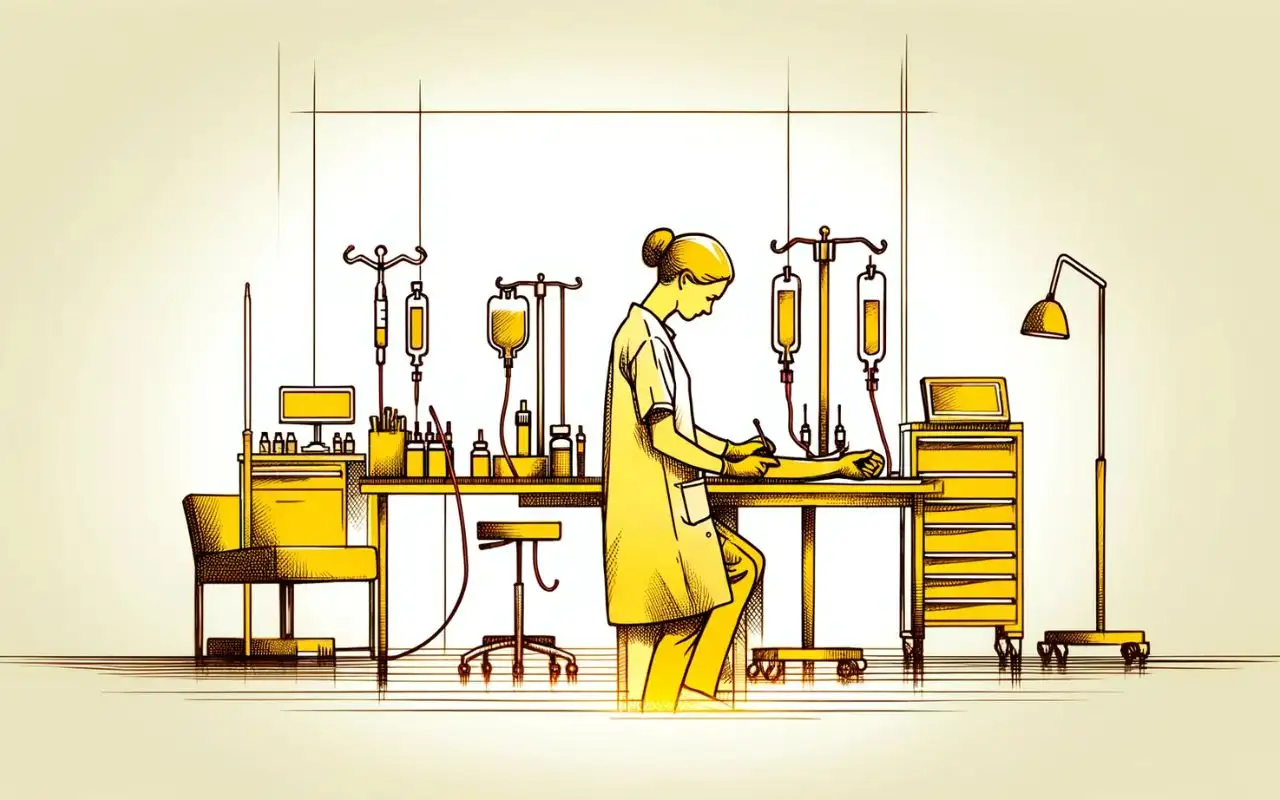A phlebotomy technician is a healthcare professional trained to draw blood from patients for medical testing, transfusions, or donations.
They are skilled in venipuncture, using needles to collect blood samples safely and efficiently.
Phlebotomy technicians work in various healthcare settings such as hospitals, clinics, laboratories, and blood donation centres.
Their responsibilities include verifying patient identities, labelling samples, and ensuring proper handling and storage of blood specimens.
How Much Does A Phlebotomy Technician Earn in South Africa
A phlebotomy technician in South Africa earns an average base salary of R11,000 per month, based on data from 40 reported salaries as of January 29, 2024.
The highest-paying cities for phlebotomists near South Africa are Durban, and KwaZulu-Natal, with an average monthly salary of R11,400, reported by 12 individuals.
While Pietermaritzburg, KwaZulu-Natal, has an average monthly salary of R12,200, as reported by 15 individuals.
Factors Affecting Phlebotomy Technician Salary in South Africa
1. Education and Qualifications
Higher qualifications (Registered Phlebotomy Technician, Certified Vascular Access Technologist) lead to significantly higher salaries than basic certification (Certified Phlebotomy Technician).
2. Work Experience
More experience generally translates to better pay. Experienced technicians may command premium rates or qualify for promotions with higher salaries.
3. Location
Major cities (Johannesburg, Cape Town, Pretoria) offer higher salaries due to increased cost of living and competition for skilled workers. Rural areas typically have lower salaries.
4. Employer Type
Public hospitals generally offer lower base salaries but may provide benefits packages and job security. Private hospitals or clinics often have higher base salaries but may have fewer benefits.
5. Work Setting
Specialized settings (oncology, research labs) requiring additional skills may offer higher pay.
6. Shift Work and Overtime
Evening, night, and weekend shifts often attract premium pay. Willingness to work overtime can also boost earnings.
7. Additional Certifications
Earning specialized certifications in areas like bloodborne pathogens or pediatric phlebotomy can increase earning potential.
8. Soft Skills and Communication
Excellent communication, patient interaction, and compassion can be valuable assets and may influence salary negotiations.
9. Performance and Productivity
Consistently exceeding expectations and demonstrating high productivity can lead to performance-based bonuses or salary increases.
10. Industry Demand and Job Market
High demand for phlebotomy technicians in a specific region or for specialized skills can create a more competitive job market with potentially higher salaries.
Education and Qualifications of A PhlebotomyTechnician in South Africa
1. Basic Certification
The minimum requirement is a National Certificate: Phlebotomy Technician (NQF Level 4) from a South African Health Professions Council (HPCSA) accredited institution. This program covers anatomy, physiology, blood collection techniques, safety protocols, and ethics.
2. Registered Phlebotomy Technician (RPT)
Voluntary registration with the HPCSA as an RPT demonstrates additional commitment and adherence to professional standards. It often leads to higher salaries and broader employment opportunities.
3. Specialized Certifications
Earning certifications in specific areas like pediatric phlebotomy, bloodborne pathogens, or vascular access enhances your skillset and marketability, potentially increasing your earning potential.
4. First Aid and CPR Certification
Possessing current first aid and CPR certifications demonstrates preparedness for emergencies and enhances patient safety, making you a more valuable candidate.
5. Computer Literacy
Strong proficiency in medical software and electronic health records (EHR) systems is essential for efficient data management and reporting in modern healthcare settings.
6. Communication and Interpersonal Skills
Excellent communication skills, empathy, and the ability to build rapport with patients are crucial for patient comfort and successful blood collection.
7. Attention to Detail and Accuracy
Meticulous attention to detail and accuracy in procedures, documentation, and labelling is essential to ensure patient safety and accurate results.
8. Teamwork and Collaboration
Working effectively within a team environment and collaborating with other healthcare professionals is vital in busy healthcare settings.
9. Continuous Learning and Professional Development
Demonstrating a commitment to ongoing learning through attending workshops, conferences, or online courses keeps your knowledge and skills current, making you a more valuable asset.
10. Professional Conduct and Ethics
Upholding ethical principles, patient confidentiality, and professional conduct builds trust and ensures adherence to regulations and best practices.

